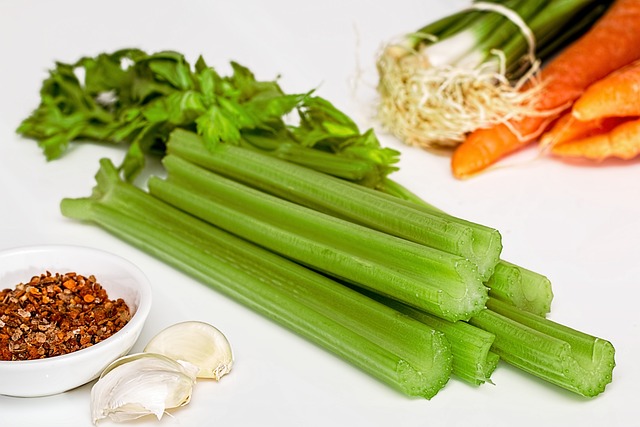Celery has been around for thousands of years, with its beginnings in the Mediterranean region during ancient times. Celery was used medicinally by the ancient Greeks and Romans, and they also believed it had spiritual and symbolic qualities. For example, the Greeks used celery to crown the winners of sports competitions, while the Romans associated it with the afterlife and death.
Celery was not commonly grown for culinary use until the 19th century. It was initially cultivated as a bog plant, and because it took so long and was so challenging to grow, it was considered a luxury delicacy. As a result, celery was only eaten by the elite and was frequently used to decorate banquets.
Celery did not become commonly available or used in cooking until the mid-20th century. It is now a popular ingredient in soups, stews, salads, and a variety of sides in kitchens around the world.
Culinary uses of celery
Celery is a versatile food that can be used in many different recipes. Its pleasant, slightly sour and slightly bitter flavor gives any meal a special depth.
Salads are among the most common applications for celery. Whether you're making a simple green salad or a more complex chopped salad, their crunchy texture and fresh flavor make them a great complement to any salad. Celery makes an excellent base for dips like traditional tuna salad or creamy chicken salad.
Celery is a popular addition to soups and stews. Its mild flavor pairs well with a range of ingredients and gives meals such as vegetable soup or chicken noodles a great texture.
However, celery is not only used in salads and soups! Other recipes you can make with it include stir-fries, casseroles, and even baked goods. Celery is a great addition to meals such as stuffing chicken or turkey, and can give foods like stuffed bell peppers a distinctive flavor and texture.
One of the favorite uses of celery is the traditional mirepoix, a mixture of celery, onions, and carrots that is the basis for many French meals. This blend adds great taste and texture to any dish and is the perfect base for soups, stews and sauces.
Health benefits of celery
Celery has many culinary applications, but it is also a health food. It is a great choice for people watching their weight because it is low in calories and rich in fiber.
Vitamin C and flavonoids, two of the antioxidants abundant in celery, can help protect your cells from oxidative stress and reduce your chances of developing chronic disease. It's also a great source of potassium, which supports heart health and can help control blood pressure.
But there is more! Apigenin and luteolin, two phytonutrients in celery that have anti-inflammatory properties, are also abundant in this vegetable. These substances may be useful in treating conditions such as arthritis and other joint pain as they have been found to help reduce inflammation in the body.
In addition, celery contains substances known as phthalate, which have been shown to relax the muscles around the arteries, enhance blood flow and reduce blood pressure. As a result, the risk of heart disease and stroke may decrease.
Grow your own celery
It's actually simpler than you think to grow your own celery, if that interests you. Celery, a cool season crop, thrives in conditions between 60°F and 70°F. It is essential to start seeds indoors 12 to 14 weeks before the expected final frost because this plant is a slow grower.
Seedlings can be put into the garden once they are about 6 inches tall. It is crucial to water the plants frequently and amend the soil with compost or other organic matter because celery requires consistent moistening and a soil that drains properly.
Since celery requires a lot of fertilization, it is necessary to fertilize the plants frequently with a balanced fertilizer. Simply cut the stems off at the base when they are the correct length, then enjoy!
Final thoughts
As a result, celery is a versatile and delicious vegetable that has been cherished for countless centuries. There are many reasons to love this crunchy vegetable, from its interesting history to its countless health benefits and culinary applications. So pick up some celery the next time you're looking for a nutritious snack or tasty addition to your food.

Comments
Post a Comment